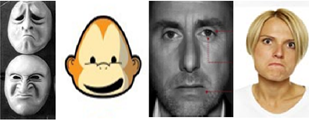
- Emotion is information - personally adressed.
- Emotion tells you if your needs are being met or not.
- Emotions organise your self and provide orientation to the environment.
- Emotions influence what you do, what you think and decisions you have.
- Feel them to heal them.
- The only way out of them is through them.
- Emotional memories change if you rework them.
- Suppressing emotion takes energy and increases stress.
- Avoiding emotion weakens your immune system.
- We usually end up doing what we feel like doing not what reason or logic dictates us. So if you want to change what you are doing we need to focus on the feelings leading you to to do what you do.
- We often regulate, avoid and soothe our painful emotions like anger and shame by using substances (i.e. alcohol etc.), self harming and other behaviours. So we need to face our feelings associated with the pain to help us cease destructive behaviour.
- Sometimes your emotions know more than you do.
- Your emotional system has evolved in order to increase your chances of survival -- to tell you what's good for you or bad for you in the world and to help you respond quickly -- and it does that not only before you think, but sometimes completely separate from what you think
- Ever meet somebody who seems perfectly nice, pleasant, and appropriate, but you still get that 'blech' feeling in your gut that creeps you out? That is your emotional system telling you something just isn't right -- looking out for you when you intellect isn't paying enough attention -- and that emotional system is influencing your behavior, for better or worse, all the time.
- Emotions tell you what's important, and remind you of it, even if you don't even know or remember what 'it' is.
- Intellect, memory, and emotions are all properties of our brain. Therefore emotions are just as important and useful as your intellect or your memory. You may intellectually grasp a ton about being a good and virtuous person, but it's your emotions that actually get your butt out of the chair to do something about it.
- Thoughts change attitudes. Emotions change actions.
- We can not only be of two minds, but also of two hearts. The empty chair recognizes that and allows those two hearts to have a conversation to help the one you feel better.
- Here's how to spot an unhealthy [i.e., maladaptive] emotion: a) you allow it and feel it and you feel worse instead of better, b) you do something about it and it makes things worse instead of better, and c) whatever it tells you about yourself or other people hurts instead of helps.
- An emotionally HEALTHY person knows what she feels, allows those feelings to happen, distinguishes the good and helpful feelings from the bad ones, acts on the good ones, gets her needs met as a result, and moves on contentedly to the next moment of her life.
- An emotionally UNHEALTHY person is in a fog about what she actually feels, blindly fights what she feels, is confused about what to do because of how she feels, acts on what she feels in a fog and regrets it later, and waits painfully for the next wave of mysterious, confusing, unhelpful feelings.
Thanks to Leslie Greenberg (1-11) and Adam Buhman-Wiggs (12-21)





